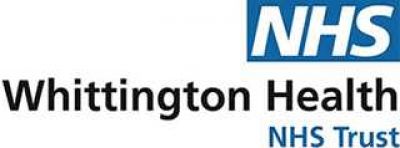-
Topics
- All Topics
- Self Care
- Blood & Skin
- Cancer
- Cardiovascular & Respiratory
-
Children & Family
- Child Emotional Wellbeing & Mental Health
- Children, Young People & Family
- Domestic Violence & Abuse
- Female Genital Mutilation
- Gender Identity Adults
- Homelessness
- Learning Disabilities
- Migrant Health
- Neurodiversity
- Safeguarding Adults
- Safeguarding Children
- Sexual Health
- Social Prescribing
- Speech & Language Therapy
- Diabetes & Endocrine
- Diagnostics & Investigations
- Frailty & Complex Care
- Gastroenterology, Colorectal, Renal & Urology
- Head, Neck & Eyes
- Infectious Diseases
- Mental Health
- MSK
- Neurology & Neurosurgery
- Nutrition & Weight Management
- Obstetrics & Gynaecology
- Social Care & Safeguarding
- Urgent & Emergency
- Clinical Pathways
-
Medicines
- Community Pharmacy
- Controlled Drugs
- Electronic Prescription Service
- Infections & Antimicrobials
- Medicines Compliance
- Medicines Optimisation Prescribing Policies
- Medicines Optimisation Team
- Medicines Supply Issues
- Patient Group Directions
- Prescribing Guidelines
- Prescribing Quality Scheme
- Prescribing Recommendations
- Self-Care Medicines Scheme
- Shared Care
- Fact Sheets
-
Practice Management
- Cancer Care Resources
- Deadlines
- Enhanced Services
- General Practice Change Management Support
- General Practice Staff Survey
- Greener NCL: Sustainable General Practice
- Hospital Bypass Contacts
- Immunisations & Vaccinations
- Interface Consensus
- Practice Vacancies
- Referral Support
- Research Opportunities
- Submit a Patient Safety Incident Report
- Submit a Quality Alert
- Support for Staff
- Education
- Digital
Infant Feeding Specialist & Breastfeeding Peer Support Service
IslingtonProvided By


Breastfeeding Peer Support Service
Peer supporters visit postnatal wards at Whittington Hospital (WH) and University College Hospitals (UCH) each day and phone all breastfeeding mothers on discharge to offer support.
Ongoing support is available by phone, video call and regular breastfeeding and social support groups. One-to-one support at appointment clinics or home visits can also be provided where necessary. Peer supporters provide valuable emotional support, as well as infant feeding support, to new mothers.
Service updates can be found on the Breastfeeding Islington Facebook page, where parents can also contact the service, or via the Islington Council Breastfeeding Support page.
Infant Feeding Specialist Service
The Infant Feeding Specialist Service can help where there are particular concerns about a baby's feeding, whether breastfeeding or bottle-feeding. It is designed to support mothers and babies with more complex difficulties that have not been resolved with basic feeding support.
Following referral, the infant feeding coordinator will decide whether to provide a face-to-face assessment, suggest management, or refer to resources over the phone. It will also be decided if the case can be followed up by breastfeeding peer supporters with feedback to the infant feeding coordinator. Post-intervention information is not routinely provided.
Breastfeeding support includes help for:
- mums who need help with baby attaching at the breast
- mums having pain or sore nipples, engorgement or mastitis
- babies with difficulty gaining weight in early days
- babies (breastfeeding or bottle-feeding) with tongue tie or suspected tongue tie affecting feeding
- babies not wanting to go to the breast
- mothers with low milk supply
- starting on solid foods
- weaning off the breast
- managing mixed feeding.
More complex problems include:
- milk supply issues possibly needing medication
- babies with growth faltering over period of time
- breastfed babies with symptoms of colic (usually related to effective attachment at the breast)
- breast or bottle-fed babies with symptoms of reflux (attachment at the breast or, for bottle-feeding babies, it can be bottle-feeding technique or constitution that needs to be checked)
- babies whose parents wonder if they have a cow's milk allergy but without blood in stool; the team can assess feeding first to rule out any feeding issues before trial of extensively hydrolysed milk
- any other issues (e.g. helping mum feed after breast abscess) that are considered complex or that the GP would like the team as health professionals to assess first.
Eligibility Criteria
Inclusions
- babies and families residing in Islington.
How to Refer
Telephone referrals
Clinicians are asked to refer by emailing the completed GP Infant Feeding Referral Form and Protocol form in the first instance.
If necessary, it is possible to refer via the telephone helpline (leave details of the mum/baby, their contact details and yours, and a summary of the current issues). Messages will be actioned as soon as possible, usually within 24 hours.
EMIS form
Referral methods: Email
Complete the GP Infant Feeding Referral Form and Protocol form and send to whh-tr.islingtonbreastfeedingpeersupport@nhs.net (for the Breastfeeding Peer Support Service) or whh-tr.islingtoninfantfeedingspecialist@nhs.net (for Infant Feeding Specialist Service).
Where to find the form
- Islington: ISL Global Documents > Paediatric folder > Infant Feeding folder
Self-referral
Mothers can self-refer via telephone helpline, email, or the Breastfeeding Islington Facebook page.
News View All
Resources
Related Services
Breastfeeding Peer Support Service
Free, evidence-based baby feeding peer support in Whittington, NMUH hospitals and Haringey support groups HaringeyBright Start Family Support
Provides support for families with school-aged children up to 19 years old IslingtonCamden Baby Feeding Team
Infant feeding support for Camden mums, before and after pregnancy CamdenHealth Visiting Team: Bright Start
Support for families with children under five IslingtonThe Breastfeeding Network
Free, evidence-based information and peer support for breastfeeding families in Enfield, North Middlesex Hospital and Barnet Hospital EnfieldRelated Topics View All
Children, Young People & Family
Services for CYP across NCLCommunity Clinic Services
Community commissioned clinics and services within NCL (non funded by Local Authority Borough)Maternity
Information about maternity services available across NCLNavigating Self-Care
Care navigators can find services by clinical need in this list of self-care optionsPerinatal Mental Health
Information about perinatal mental health services available across NCLDietetics
Dietetics services in NCLReview date: Tuesday, 10 November 2026
